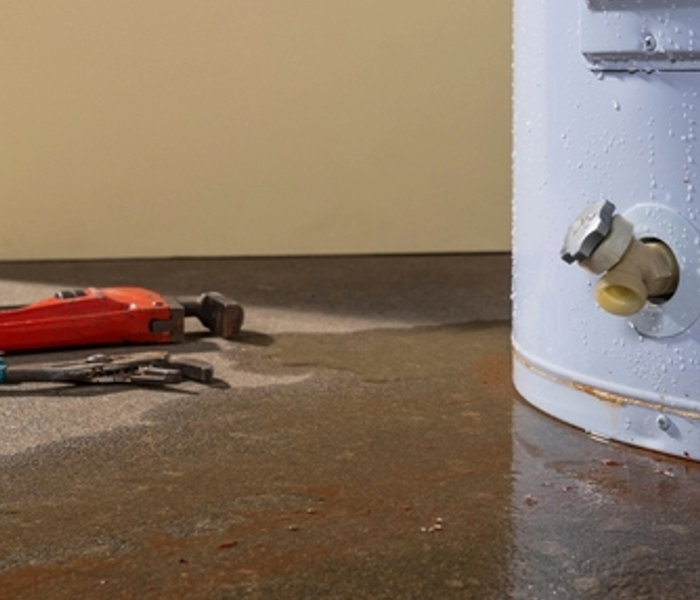5 Spring Cleaning Tips to Avoid Water Damage
3/15/2024 (Permalink)
Tip #1: Inspect Appliances for Leaks
Leaking appliances are a leading cause of water damage in residential settings. Dishwashers, refrigerators, water heaters and washing machines are water damage disasters waiting to happen, so it is essential to regularly inspect these appliances to ensure that they are functioning correctly and have not been damaged.
- Look for signs of small leaks that may usually go unnoticed
- Replace defective, cracked, or torn seals
- Inspect all supply hoses
- Make sure all valve connections are tight
- Look into acquiring a leak detector
- Inspect the dishwasher door gaskets after cleaning
- Consider upgrading to stainless steel cord instead of plastic supply tubing for water supply tubes to the washing machine
Tip #2: Survey the Roof and Attic for Damage and Leaks
Roof leaks are another top cause of water leaks. A leaking roof allows water intrusion to damage the ceiling, attic, and walls, causing wooden building materials to rot and mold growth to occur.
If the home has an attic, look for any signs or smells of water damage or microbial growth.
If you notice anything that needs closer inspection or repair, call a roofer.
Tip #3: Remove Clogs and Blockages From Gutters and Downspouts
Gutters and downspouts help guide water away from the foundation of a house, preventing water from entering the structure or compromising the foundation. When these fixtures become clogged, the water build-up can rot away the wooden exterior near the eaves and create new avenues for water to migrate into the home.
Remove leaves, moss, debris, mildew, mold, or any other obstructions. Never use a pressure washer to clean gutters and downspouts since the high pressure and heat of this cleaning method can cause damage.
Tip #4: Apply Caulk to Any Cracks or Gaps in the Home’s Exterior and Interior
Gaps and cracks are an easy entry for water to intrude into a home. Inspect the house for cracks and thorough attention to the joints and frames of windows. Use the appropriate caulk to seal the area or, for cracks in masonry and concrete, use hydraulic cement.
Tip #5: Ensure the Landscaping Does Not Direct Water Towards the Home
Warmer temperatures make spring and summer a favorite time to plan and work on landscape projects. One landscape project that can prevent water damage involves adjusting the yard so that it directs water away from the home. While most properties have grading that slopes away from the house, some properties are not graded properly, which means that water can pool near the house and compromise the foundation. Solutions that are less intrusive than adjusting the grading include a French drain, an underground drainpipe, or a dry creek.
If you incur a water damage, from any source, SERVPRO of Jacksonville Northwest is available 24/7 for your water damage restoration needs!


 24/7 Emergency Service
24/7 Emergency Service
